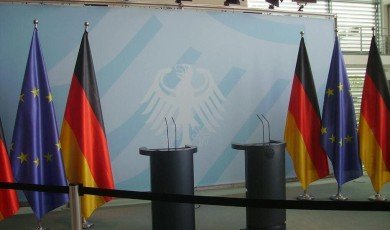
In our increasingly globalized world, international relations extend far beyond political negotiations and trade deals. Healthcare, a universal need, has become an essential element of diplomacy—bridging divides, fostering trust, and building collaborative networks. At the heart of these efforts lies the necessity for clear and accurate communication. The demand for translation services for healthcare has never been greater, as effective multilingual communication ensures vital medical knowledge, innovations, and emergency responses cross borders seamlessly.
This post explores how medical translation services function as a pillar of modern diplomacy, strengthening international relations, global health initiatives, and humanitarian projects.
The Role of Translation in Global Healthcare Collaboration
Medical Translation: More Than Words
Medical translation is about much more than converting documents from one language to another. It involves the precise adaptation of complex terminology, ensuring regulatory compliance, and conveying subtle nuances critical to patient safety and treatment efficacy. In the international arena, these translations enable governments and organizations to cooperate on public health initiatives, respond swiftly to crises, and share ground-breaking research.
Consider the scenario of two countries collaborating on a joint research project to combat a global health threat. Without expert medical translation services, researchers may encounter miscommunications that lead to costly delays or misunderstandings—potentially compromising the results. When performed by trained specialists, translation becomes the bridge that allows knowledge and innovation to flow freely, fostering mutual respect and diplomatic goodwill.
Case Studies: Translation’s Diplomatic Impact
- COVID-19 Pandemic: During the global outbreak, accurate translation of medical protocols, vaccine documentation, and public health advisories became essential. Countries shared vital information on treatment regimens, vaccine efficacy, and containment strategies. High-quality translation services for healthcare ensured that such knowledge reached every corner of the globe quickly and reliably, reinforcing collaborative efforts and supporting coordinated responses.
- WHO and International Guidelines: The World Health Organization routinely publishes multilingual health guidelines and advisories. By making these resources widely accessible, medical translation helps countries align their strategies and formulate compatible policies—facilitating international cooperation and reducing diplomatic friction.
- Disaster and Humanitarian Relief: In times of crisis—be it earthquakes, wars, or epidemics—international aid teams must quickly disseminate medical instructions to diverse populations. Swift, accurate translations of consent forms, treatment protocols, and logistical communications are not only life-saving but also reinforce a spirit of solidarity and partnership.
Translation Services as a Soft Power Tool
Diplomatic efforts often depend on the cultivation of soft power—shaping attitudes through cultural exchange, aid, and demonstration of values. Providing high-quality medical information in a partner country’s language is a powerful gesture. It shows respect for local cultures and increases the perceived credibility of international donors or governments. When a nation offers multilingual healthcare resources or helps translate medical research, it builds goodwill and positive diplomatic capital.
Translation also plays a critical role in medical education exchange programs, international seminars, and cross-border clinical trials. By enabling medical professionals to learn and share across linguistic barriers, these services build lasting professional bonds that translate into stable diplomatic networks.
The Lifeline of Cross-Border Healthcare
Patients seeking treatment abroad, international medical conferences, and pharmaceutical collaborations all depend on reliable translation. For example, an international patient’s medical records and prescriptions must be understood by foreign healthcare providers. Misinterpretation can threaten their health and undermine trust in cross-border systems. With professional translation services for healthcare, diplomatic relationships remain strong, and citizens feel supported by their government’s efforts to ensure their well-being worldwide.
Overcoming Barriers: Challenges to Effective Medical Translation
Diplomacy in healthcare faces several linguistic and cultural hurdles. Medical jargon, diverse regulatory environments, and rapid scientific advances make the task even more complex. A translator in this field must be highly specialized—not only fluent in target languages but also knowledgeable in medical science and local regulatory norms.
Mistakes in translation—such as misinterpreted drug instructions or incorrectly translated informed consent—can spark misunderstandings and undermine diplomatic relations. It is here that professional organizations specializing in medical translation services are crucial, setting high standards for accuracy, timeliness, and ethical responsibility.
Technology has further enhanced the capacity of translation services. Thanks to AI-powered tools and cloud-based collaboration platforms, multilingual healthcare communications now move at the speed of diplomacy. However, human expertise remains vital in guaranteeing context-sensitive and culturally appropriate translations.
Translation Services as Fundamentals of Health Diplomacy
As emerging health issues transcend borders—climate change-related diseases, antibiotic resistance, or new viral outbreaks—the ability to communicate swiftly and precisely in multiple languages will define diplomatic success. Countries that invest in robust translation alliances prepare themselves not only for better healthcare outcomes but also for a more influential and respected position in global affairs.
International organizations, governmental bodies, and NGOs are increasingly recognizing translation as a strategic asset. By formalizing partnerships with expert providers in translation services for healthcare, they pave the way for smoother negotiations, better-prepared responses to emergencies, and stronger ties with their partners and populations.
Building Bridges Through Medical Translation
In the intricate dance of global diplomacy, healthcare stands as both a common ground and a rallying cause. Medical translation services are the unheralded facilitators—quietly ensuring that information, innovation, and compassion know no borders. From pandemic control to humanitarian relief, from research collaboration to patient care, expert translation underpins every key diplomatic endeavor in the health sector.
As we look ahead to an era when global health challenges demand joint action, the role of translation services for healthcare will continue to grow. By breaking down language barriers, they not only save lives but also foster understanding, trust, and partnership between nations. In this way, medical translation stands as both a life-saving tool and a cornerstone of modern diplomacy—a critical bridge between people, communities, and countries in pursuit of a healthier, more harmonious world.







